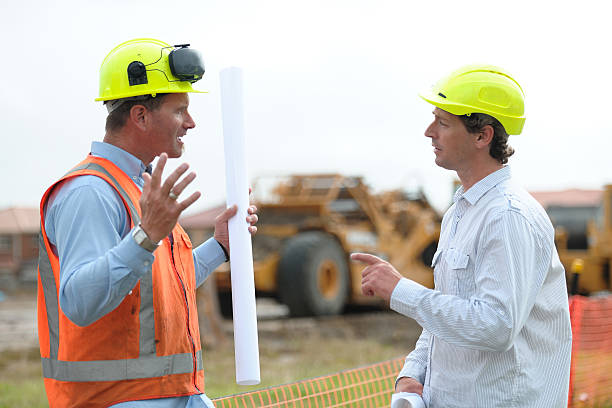The Essence of Construction Contract Administration: Safeguarding Projects from Groundbreaking to Completion
Introduction: The foundation of every successful construction project lies not only in bricks, mortar, and manpower but also in well-drafted and meticulously managed contracts. At the core of this contractual landscape is Construction Contract Administration (CCA) – the unsung hero ensuring projects stay on course, both operationally and legally. But what exactly is the essence of CCA, and why is it so crucial in the vast arena of construction?
Defining Construction Contract Administration: Construction Contract Administration encompasses the processes, tasks, and responsibilities associated with ensuring that every provision of a construction contract is fulfilled in line with the intent and spirit of the agreement.
Key Components of CCA:
- Contract Formation and Review:
- Drafting precise contracts that detail the responsibilities, expectations, and risks for all parties involved.
- Ensuring clarity in terms, preventing ambiguity which can lead to disputes.
- Documentation and Record Keeping:
- Diligently documenting project progress, changes, delays, and other significant events.
- This documentation serves as evidence in potential disputes and ensures all parties are informed of ongoing developments.
- Change Order Management:
- Addressing and documenting alterations to the project scope, be it due to unforeseen circumstances, client requests, or other factors.
- Ensuring Regulatory and Legal Compliance:
- Monitoring to ensure that construction aligns with local building codes, environmental regulations, and other pertinent laws.
- Monitoring Financial Transactions:
- Overseeing payments to ensure they align with contract terms and work completed.
- Mitigating financial risks by ensuring all monetary transactions are transparent and justified.
- Communication Facilitation:
- Serving as a communication bridge between stakeholders, ensuring that queries, clarifications, and concerns are addressed in a timely manner.
- Dispute Avoidance and Resolution:
- Proactively identifying potential conflicts and resolving them before they escalate.
- If conflicts arise, aiding in mediation or other dispute resolution mechanisms.
Why is CCA Indispensable?
- Risk Mitigation: Through airtight contracts and meticulous record-keeping, CCA reduces potential legal and financial risks.
- Ensuring Quality and Compliance: CCA ensures that the executed work adheres to the quality standards and specifications laid out in the contract.
- Budget Management: CCA plays a pivotal role in ensuring that the project remains financially on track, preventing cost overruns and facilitating justified payments.
- Timely Project Completion: By managing changes efficiently and resolving disputes promptly, CCA helps prevent unnecessary project delays.
Hence the essence of Construction Contract Administration lies in its relentless pursuit of clarity, compliance, and communication. It’s the backbone supporting the physical manifestation of architectural dreams, ensuring they’re realized on time, within budget, and to the agreed-upon specifications. In an industry rife with complexities and challenges, CCA stands out as the beacon, guiding projects to their successful culmination.
Don’t leave your construction projects to chance. Allow Lighthouse PMC’s expertise in Construction Contract Administration to safeguard your interests and pave the way for a hassle-free, successful project completion. Contact us today!
















